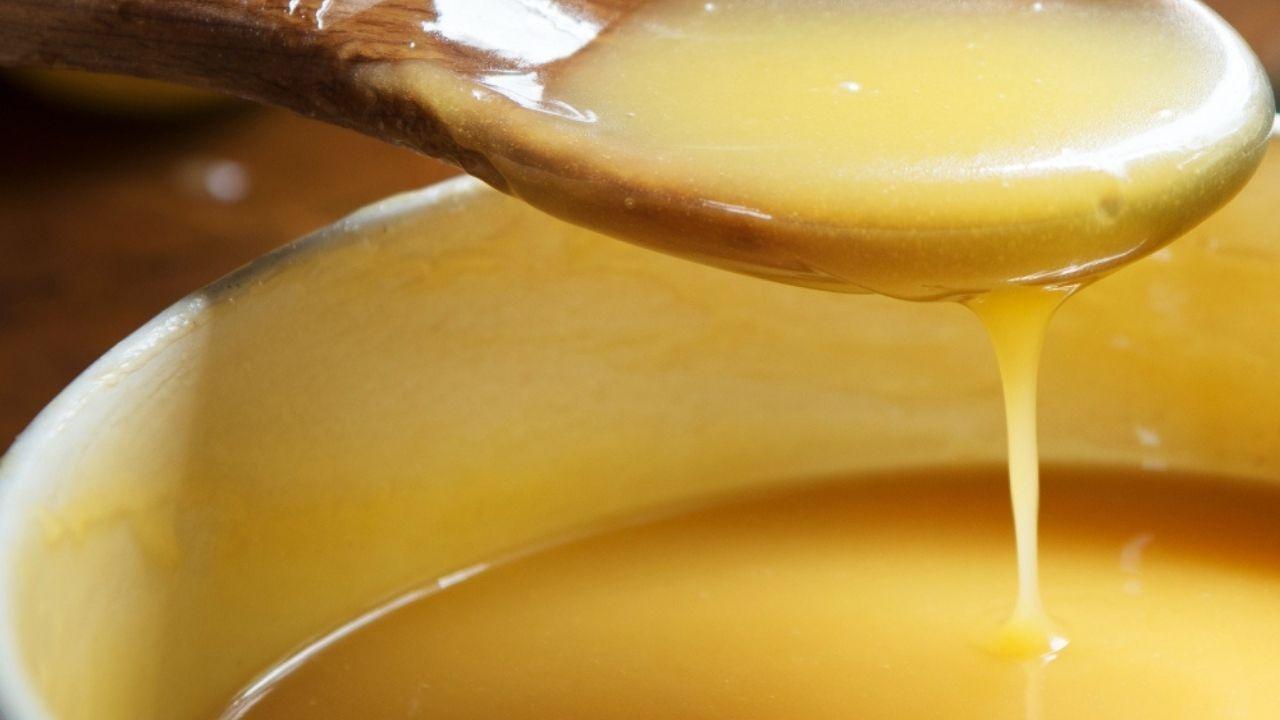
Post by : Mikhael Nasser
Clarified butter, commonly recognized as ghee, has been integral to various traditional culinary practices, particularly in Indian cuisine, for generations. This substance is crafted by melting butter to eliminate milk solids, resulting in pure butterfat. Celebrated for its rich taste and several health advantages, the debate remains: Is clarified butter a heart-friendly option, or should it be shunned? Let's delve into the realities.
Primarily composed of fat, clarified butter houses both saturated and unsaturated fats, notably high in saturated fat. Linked to elevated levels of LDL (low-density lipoprotein) cholesterol, commonly deemed "bad" cholesterol, increased LDL can cause artery plaque accumulation, heightening heart disease and stroke risks.
Nevertheless, not all fats are manufactured alike. This butter alternative contains essential nutrients, including vitamins A, D, E, and K, vital for immune health, bone strength, and overall wellness. It also carries butyrate, a short-chain fatty acid offering anti-inflammatory properties.
The concern surrounding clarified butter chiefly revolves around its saturated fat levels. While such fats can spike LDL cholesterol, their effects can vary biologically. Notably, clarified butter's butyrate may aid in lowering inflammation and moderating cholesterol levels, with research indicating a potential reduction in heart disease risk linked to butyrate consumption.
Alongside saturated fat, this butter variant also contains monounsaturated fats (MUFAs) and polyunsaturated fats (PUFAs), recognized for their heart-healthy attributes. These beneficial fats can diminish LDL cholesterol while enhancing HDL (high-density lipoprotein) cholesterol, often known as "good" cholesterol, potentially counteracting the negative impacts of saturated fats found in clarified butter.
Chronic inflammation significantly contributes to cardiovascular ailments. Some studies imply that clarified butter, due to its butyrate content, might exert anti-inflammatory effects, thereby possibly reducing heart disease risk.
In various traditional culinary approaches, clarified butter is utilized sparingly and often accompanied by heart-healthy foods like fruits, vegetables, and whole grains. Within these dietary frameworks, clarified butter serves primarily as a cooking fat instead of being a major fat source. Balance is key—integrating clarified butter means ensuring overall fat intake remains healthy.
While clarified butter does have a higher saturated fat content than some alternatives, its elevated smoke point means it’s less likely to decompose into harmful substances upon heating. This characteristic makes it safer for high-temperature cooking than vegetable or olive oils, which tend to break down more readily.
Moderation remains central to heart health; clarified butter can be beneficial when used appropriately while balancing it with other healthy fats.
Professional opinions about clarified butter vary. Some advise limiting its intake due to saturated fat content, while others argue that moderate consumption typically won’t pose significant risks for most individuals. Studies indicate that substituting clarified butter for processed oils or trans fats may yield neutral or even positive effects on heart health.
Incorporating clarified butter into your diet is best approached with moderation. Like other fats, it's advisable to maintain limited quantities, typically one to two teaspoons daily to reap the nutritional rewards without overindulging in saturated fats. Ensure that your intake is balanced with ample fruits, vegetables, and whole grains, avoiding excessive overall fat consumption.
For those wary of clarified butter's saturated fats but wishing to savor its flavor, several heart-friendly substitutes may be considered:
Olive Oil: This alternative is abundant in monounsaturated fats and has demonstrated the ability to lower LDL cholesterol levels while mitigating cardiovascular disease risks.
Coconut Oil: While also containing saturated fats, coconut oil showcases a different fatty acid structure and may positively influence heart health when consumed judiciously.
Avocado Oil: Rich in monounsaturated fats, avocado oil serves as a commendable alternative to clarified butter, whether in cooking or as a salad dressing.
So, is clarified butter good or bad for your heart? The answer lies in moderation. Offering healthy fats and crucial nutrients, clarified butter can be advantageous when consumed in small amounts. Its saturated fat content may elevate cholesterol, yet it benefits health through anti-inflammatory properties and enhanced gut health.
For those with concerns regarding heart disease or cholesterol, it’s prudent to utilize clarified butter sparingly as part of a balanced nutrition plan. Focus on incorporating a variety of fruits, vegetables, and whole grains, and consider incorporating heart-healthy oils like olive or avocado oils for cooking needs. Striking a balance is essential for maintaining robust heart health, and moderate use of clarified butter can be harmoniously integrated into a healthy eating pattern.
As always, if you have specific questions regarding heart disease or cholesterol, it's advisable to consult a qualified healthcare professional or nutritionist.
This article's content serves general informational purposes only and should not be construed as medical advice. Always seek guidance from a healthcare provider, registered dietitian, or nutritionist before implementing any significant dietary changes, particularly if you have pre-existing health conditions like heart disease or high cholesterol. Individual nutritional requirements may differ, and a qualified health professional can provide tailored guidance.










Four Fatalities from Cebu Landfill Disaster; Rescue Efforts Ongoing
A landfill disaster in Cebu has left four dead and many missing, as rescue teams navigate hazardous

Netanyahu Envisions Ending US Military Assistance in the Next Decade
Benjamin Netanyahu announces a goal for Israel to become independent from US military aid within ten

Dhurandhar Surges Past ₹844 Crore: A Record-Breaking Journey for Ranveer Singh's Spy Thriller
Ranveer Singh's Dhurandhar collects ₹3.6 Cr on Day 36, reaching ₹844.45 Cr in India. The spy drama r

FCC Greenlights SpaceX to Deploy 7,500 Additional Starlink Satellites Globally
The FCC has approved SpaceX's plan to launch 7,500 new Starlink satellites, enhancing global interne

Indonesia Halts Access to Elon Musk's Grok AI Due to Content Safety Issues
Indonesia has temporarily halted Elon Musk’s Grok chatbot over concerns of unsafe AI-generated conte

PV Sindhu's Journey at Malaysia Open Ends in Semifinal Against Wang Zhiyi
PV Sindhu's Malaysia Open bid concludes in the semifinals as she falls to China's Wang Zhiyi with sc